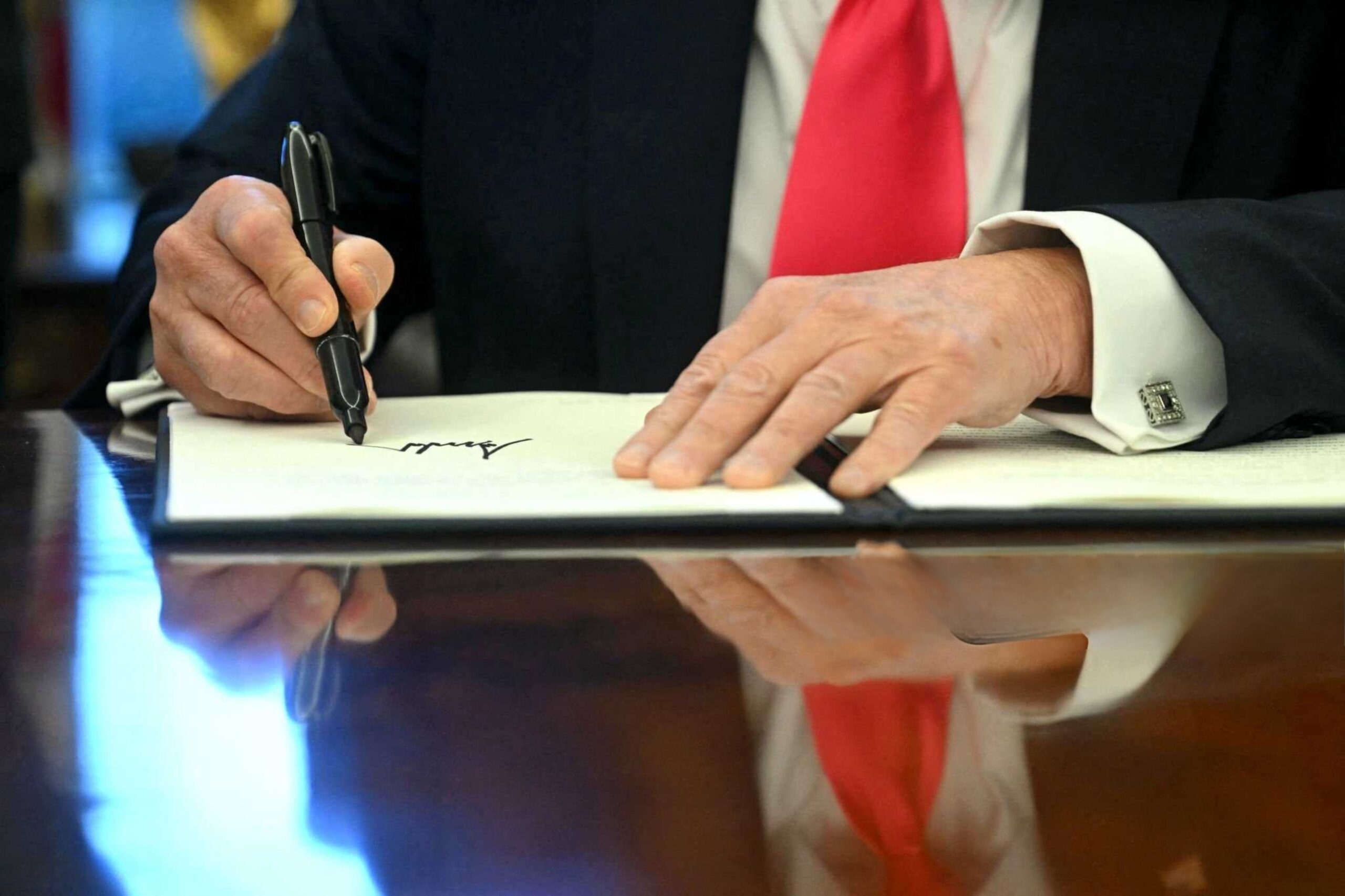Posts tagged Executive Order
GOP Unveils Bill To End Taxpayer-Funded Union Organizing
April 8, 2025 // Lee and Cline’s No Union Time on the Taxpayer’s Dime Act would end the practice of “official time”— paid time given to federal employees to perform union duties during work hours and using government office space. This practice costs taxpayers more than $100 million annually, according to data from the White House Office of Personnel Management (OPM).
Pro-labor Republicans push Trump to rescind order busting most federal unions
April 3, 2025 // “This executive order, which ruthlessly strips collective bargaining agreements for over 1 million federal workers, is the most recent attack your administration has levied against our merit-based civil service in the effort to cut the workforce and replace them with political cronies,” they wrote. “While the CSRA does give the president the authority to limit collective bargaining agreements due to national security concerns, the executive order’s direction to terminate mass swaths of federal employee collective bargaining agreements is clearly intended to broadly dismantle the CSRA, which is specifically designed to grant federal employees the right to collective bargaining as a means to resolve workplace issues while maintaining the smooth functioning of government operations.”
Trump Administration Moves To Eliminate Bureau Of Prisons Union
April 2, 2025 // Each month, Labor Management Relations meetings take place between the BOP’s union, American Federal Government Employees Council 33, and executive management at every prison. Many times, these meetings are constructive but there are complexities in running an agency with 36,000 employees. Often, the union members who primarily are the face of the agency to the prisoners they watch over, feel disconnected from management according to union representatives
‘This is the revenge’: Unions lash out at Trump administration over collective bargaining clampdown
March 31, 2025 // “This is the retaliation. This is the revenge. This is the shut ’em up effort,” said Hoyer, adding the actions are “consistent with the Republican Party’s long-standing hostility for the rights of working men and women to organize.” “Federal law gives federal employees the right to engage in collective bargaining,” said Raskin, adding, “That’s how these unions were formed.”

Backgrounder: Executive Order: Exclusions from Federal Labor-Management Relations Programs
March 31, 2025 // The practice of “official time” is when unionized federal employees perform union-related activities, rather than their actual public service duties, while being paid by taxpayers. The Federal Unions EO requires that agencies, upon termination of an applicable collective bargaining agreement, reassign any workers who performed “official time” to positions where they perform solely agency business. It also contains language regarding existing grievance proceedings and allows for the head of each agency to submit a report to the President within 30 days highlighting any agency subdivisions that were not covered but should have been covered under the Federal Unions EO.

Trump signs executive order to end collective bargaining at agencies involved with national security
March 27, 2025 // President Donald Trump moved Thursday to end collective bargaining with federal labor unions in agencies with national security missions across the federal government, citing authority granted him under a 1978 law. The order, signed without public fanfare and announced late Thursday, appears to touch most of the federal government. Affected agencies include the Departments of State, Defense, Veterans Affairs, Energy, Health and Human Services, Treasury, Justice and Commerce and the part of Homeland Security responsible for border security.
Blackburn: By reining in federal labor unions, Congress can cut down on government waste | OPINION
March 27, 2025 // That’s why Sen. Mike Lee (R-Utah) and I recently introduced the Federal Workforce Freedom Act, which would put a stop to all collective bargaining agreements between federal agencies and labor unions. Among its provisions, this legislation would prohibit federal employees from participating in labor unions for the purposes of collective bargaining, ban federal agencies from engaging in collective bargaining negotiations, and immediately terminate all collective bargaining agreements.
Federal labor mediation agency cuts staff down to ‘skeleton crew’
March 26, 2025 // The Trump administration is cutting almost the entire workforce at a small, independent agency that handles collective bargaining disputes in the private sector and across the federal workforce. The Federal Mediation & Conciliation Service is terminating most of its employees and services by the end of the day Wednesday, according to four employees who spoke to Federal News Network.

OPINION: Federal Workers Shouldn’t Have Collective-Bargaining Rights
March 25, 2025 // To that end, Trump should push the GOP-controlled House and Senate to pass legislation banning federal workers from collectively bargaining. He and other leaders should frame that policy as a way to save taxpayers’ money. As the Institute for the American Worker has shown, the collective-bargaining process costs taxpayers hundreds of millions of dollars yearly. Trump wouldn’t be the first president to oppose federal collective bargaining. Even liberal icon Franklin Delano Roosevelt rejected the practice, arguing that it made government less accountable. He was right. When federal unions negotiate with agencies, the taxpayers who fund them have no voice.

Commentary: Taxpayer-Funded Union Work Deserves Transparency, Limits
March 21, 2025 // The Office of Personnel Management estimated federal employees spent at least 2.6 million hours on official time in fiscal year 2019, at a cost to taxpayers of $135 million. This was after President Trump sharply curbed taxpayer-funded union time via a 2018 executive order. Because unions have a right to unspecified quantities of official time under federal statute, the most the president can do without congressional action is implement parameters around its use or, in the case of the Biden administration, crank it to 11. In his drive to become “the most pro-union president in history,” Biden rescinded Trump’s executive order limiting official time and directed federal agencies to grant unions more taxpayer-funded union time.
